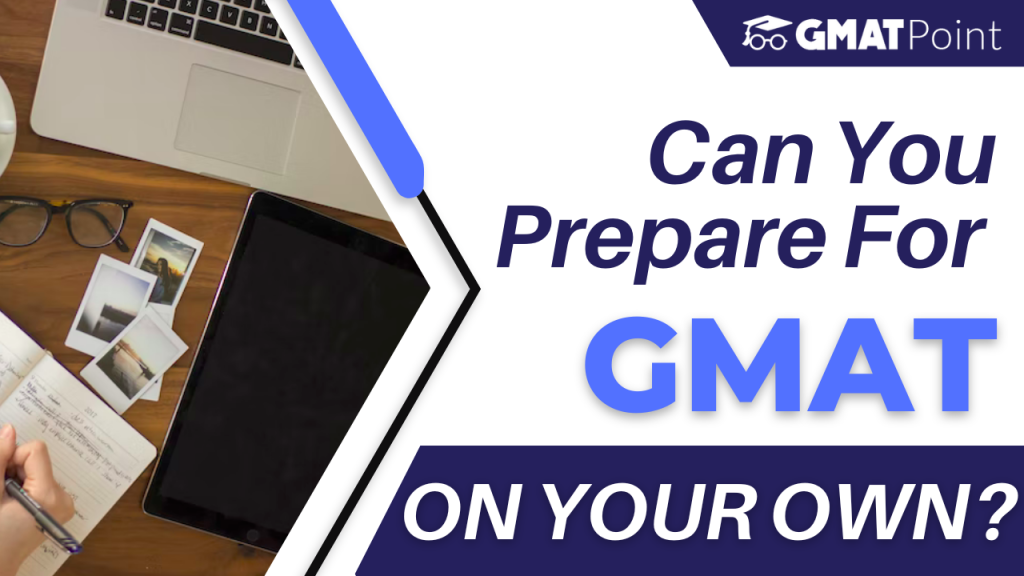GMAT Preparation (Self-study Plan)
If you have decided to prepare for the GMAT to get into graduate business programs worldwide, you might wonder if it is possible to prepare for the exam on your own or if you should take the guidance of coaching classes. It is recommended that you enrol in online coaching for systematic preparation. On the other hand, if you decide to prepare on your own, you may have the question, “How can you study for GMAT on your own“.
Take Free GMAT 2023 Daily Targets
Subscribe To GMAT Preparation Channel
Can You Study for GMAT On Your Own?
It is also quite possible to prepare on your own, and if you decide to do so, make sure you have a few things sorted.
Take a Diagnostic Mock Test
It is vital for you to take a mock test before beginning your preparation. This will help you understand the areas in which you are already strong and those areas where you require more practice. It will also give you an idea about the format of the examination before you prepare for it. This will help you create a holistic plan for the next few months. You can also check out these Free Quant and Verbal Topic tests.
Prepare a Routine
Once you have taken your first mock test, you should prepare a short-term as well as a long-term routine. Your short-term routine should include how many hours you spend each day of the week and how much time you devote to each section of the exam.
Your long-term routine should include how much time you give to learn each topic in the syllabus and your mock schedule. You should also schedule the date of the actual test while you are preparing your plan. Please don’t keep your mocks scheduled after you complete
the entire syllabus. You should apply what you learn in your mocks as you prepare for the test.
A routine will give structure to your preparation. It will also prevent you from procrastinating.
However, it is important to set realistic goals in your study plan; otherwise, it will be counterproductive for your preparation. It is also advised to start your practice with your target score in mind.
Here is a sample routine that you should make ahead of each week. You can always customise the schedule according to your timings.
| Monday | Tuesday | Wednesday | Thursday | Friday | Saturday | Sunday | |
| Before Work
(1h) |
GMAT Point Daily targets | GMAT Point Daily targets | GMAT Point Daily targets | GMAT Point Daily targets | GMAT Point Daily targets | Give a Mock
(3h)and Analyse |
|
| After Work
(2h) |
Practice Critical Reasoning | Practice RC
|
Practice quants (PS & DS Questions) | Practice quants (PS & DS Questions) | Practice SCs,
Practice Quant questions |
Practice
The most important part of your preparation is regular and rigorous practice. Your initial mocks will indicate the areas in which you need more training. Your job is to keep improving in your weaker areas while keeping in touch with your strong areas.
Occasionally, practice writing essays for the AWA(Analytical Writing Assessment) section, and make sure to pay attention to Integrated Reasoning while you prepare for GMAT.
For both the Verbal and Quants, you can check out the official guide by GMAC, which will contain questions for practice in both verbal and quants sections.
You should also definitely check out GMATPoint, which offers Free daily tests in verbal and quants covering all exam topics, and with video solutions. You should solve these daily targets in GMATPoint every day to achieve consistency in your preparation and also to gauge your preparation against other examinees to know where you stand.
Peer Learning
It is helpful to prepare for the exam with students who are also serious about giving it. It is an excellent way to get your doubts solved as well as learn new methods to solve problems and stay motivated during your preparation.
You can join the GMATPoint Telegram group to connect with highly motivated students determined to crack the GMAT exam.
Mock Tests and Analysis
A significant part of your learning will be through your mocks and their analysis. You should be able to apply what you learn in your mocks in a timed environment. Taking mocks regularly will give you an accurate indication of how prepared you are for the test. You should take at least 5-6 mocks before you give your exam.
Analyzing a mock is as important as giving the mock. Through proper analysis, you will understand how to improve and what strategies to implement. Reviewing the solutions to the questions will also teach you the appropriate methods to solve questions in the actual exam.
Eventually, with enough practice and mock tests, you will be able to see improvement if you stay consistent with your study plan. While studying for GMAT on your own may be challenging at first, it is possible with constant efforts and the right approach. Familiarize yourself
with the test format and content, develop a study plan, take practice tests, study the material and focus on developing test-taking strategies. With discipline, dedication, and a good study plan, you will be well on your way to achieving a high score on the GMAT.
If you have any queries regarding the GMAT Preparation, please feel free to drop an email at support@gmatpoint.com.
All the best.
If you are starting your GMAT preparation from scratch, you should definitely checkout the GMATPOINT
